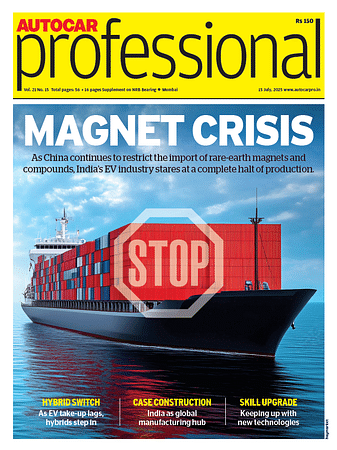BUDGET 2025 showers benefits on Li-ion battery, EV manufacturers
Govt exempts basic customs duty on scrap of Li-ion battery and several critical minerals, as well as 35 additional capital goods for battery manufacturing.
In a bid to boost domestic production of lithium-ion batteries for electric vehicles (EVs), the government in the union budget for 2025-26, has announced plans to fully exempt basic customs duty on 35 additional capital goods used in their manufacturing. It has also exempted the customs duty on scrap of lithium-ion batteries and scrap of critical minerals cobalt and copper.
These announcements, which came during the budget presentation on Saturday, are expected to significantly reduce the cost of domestic battery production and improve the availability of major raw materials for manufacturing
“To the list of exempted capital goods, I propose to add 35 additional capital goods for EV battery manufacturing, and 28 additional capital goods for mobile phone battery manufacturing. This will boost the domestic manufacture of lithium-ion battery, both for mobile phones and electric vehicles,” Finance Minister Nirmala Sitharaman said, in her budget speech.
“I propose to fully exempt cobalt powder and waste, the scrap of lithium-ion battery, lead, zinc and 12 more critical minerals. This will help secure their availability for manufacturing in India.”
The customs duty on the waste and scrap of lithium-Ion battery and scrap of cobalt powder, lead and zinc were at 5%, while the duty on scrap of several critical minerals such as cobalt, copper was in the range of 2.5-10%. The budget presented today proposed to exempt all these from customs duty.
EVs are seen as a key enabler for India's low-carbon future. Currently, EVs in India are powered largely by imported batteries from China, Japan, and South Korea. Localization of cell manufacturing is something that is being looked at keenly as made-in-India lithium-ion batteries hold potential to drive the adoption of EVs, besides making the country less import-dependent.
However, the biggest challenge for lithium-ion battery manufacturing in India is the availability of raw materials. India lacks significant reserves of minerals such as lithium, cobalt, nickel, and graphite, although some discoveries have been made in recent years.
This forces battery makers to depend on imported raw materials. India's lithium-ion battery industry heavily depends on imports, with China and Hong Kong being the primary suppliers.
China commands a significant share of critical mineral processing and production globally. Across key commodities such as nickel, cobalt, and lithium, China alone is responsible for processing 65%, 68%, and 60% of the global output, respectively.
Vikram Handa, managing director of Epsilona Advanced Materials noted that the exemption of these crucial materials and critical minerals from basic customs duty is a significant step and this along with the inclusion of 35 additional goods for EV battery manufacturing will help reduce reliance on imports.
“This provides a powerful impetus for the industry to invest in expanding domestic capabilities,” he said. Epsilon Advanced Materials manufactures anode and cathode materials for lithium-ion batteries.
RELATED ARTICLES
CEAT Board Approves Rs 450 Crore Expansion to Boost PCUV Tyre Capacity at Chennai Plant
The company's Chennai plant currently operates with an annual capacity of approximately 70 lakh tyres and is utilizing a...
Range Rover Launches Velar Autobiography in India at ₹89.90 Lakh
Priced ₹5 lakh above the base Dynamic SE, the Velar Autobiography is available with both petrol and diesel engines.
Tata Punch Crosses 6 Lakh Sales in Under 4 Years
The Punch now accounts for 36% of Tata Motors' total passenger vehicle sales.





 By Kiran Murali
By Kiran Murali
 01 Feb 2025
01 Feb 2025
 8780 Views
8780 Views





 Shahkar Abidi
Shahkar Abidi


 Arunima Pal
Arunima Pal


